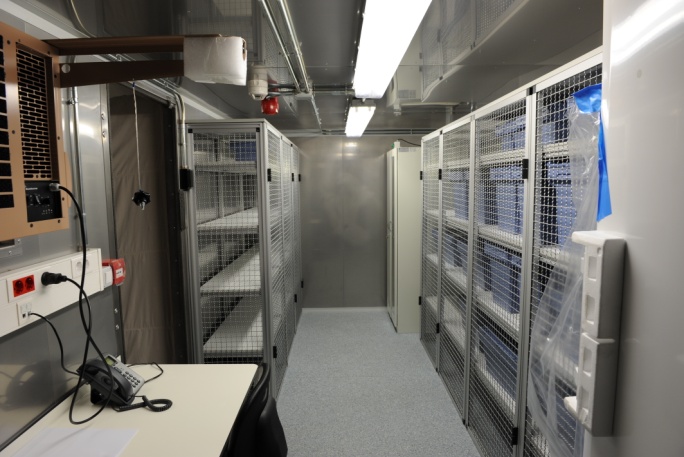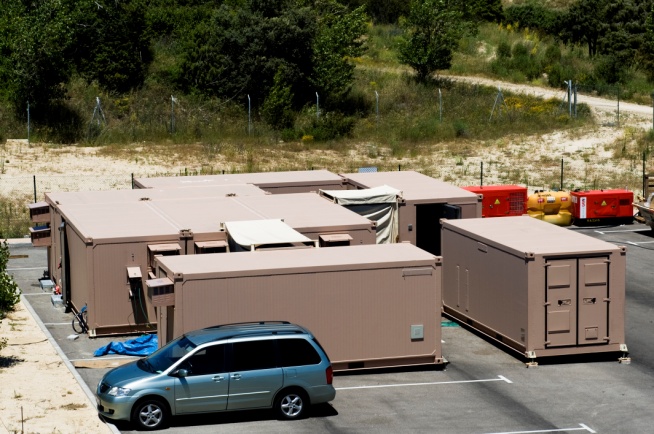by Jim Blackburn, EDA's Capability/Capability Area Engagement
The European Defence Agency has recently completed a project to develop and build a forensic laboratory to analyse Improvised Explosive Devices (IEDs) recovered from incidents. IEDs account for approximately 80% of military casualties in Afghanistan and kill approximately three times that number of civilians. Taking actions to counter the threat of IEDs involves gathering as much information as possible about who is making them, where the components have come from and who is supporting the supply and building network. This allows the IED network to be interdicted, thus saving the lives of soldiers and civilians alike. It is essential in modern conflict to ensure that the prosecution of the campaign is conducted within boundaries of the law and therefore the collection of information about bombers must be carried out in an evidentially pure fashion such that it could later be used as evidence in a judicial process.

The Ministers of Defence from the EDA Member states directed the Agency to spend Operational Budget money to purchase the equipment for such a forward deployable forensic laboratory to deploy into operations under a lead nation. The aim is to demonstrate to all Member States the utility of such a laboratory and the contributions that it can make. Furthermore it aims to prove the requirements, specifications and procedures, which can then be passed back in an intellectual package to all pMS to enable a template for the development of similar capabilities in the future.
Following the initial direction, the EDA set up a small team of experts from across the Member States to define the requirements for the demonstrator, establish the legal framework under which it could exist and deploy, set up the contracting, organise the personnel from across the Union to man the laboratory, and train the team. The contract was let on 17 December 2010 with the Spanish company Indra and delivered at the end of July after training personnel. The laboratory and the personnel flew into Afghanistan by the end of July 2011 and was set up and running with Initial Operating Capability by mid September 2011. The whole project was completed in a very short time which considering the multinational dimension of the staffing was remarkable.

The EDA Project, known as the Theatre Exploitation Laboratory (Demonstrator) or TEL(D), has been deployed by France as the lead nation and is manned by a multi-national team from France, Spain, Poland and the Netherlands. Early next year Italy, Romania and Sweden are expected to send manning contributions. Austria has bought some additional hardware for the laboratory to enhance its capabilities and has also made a significant contribution to training the personnel. Sweden and the Netherlands provided experts to help with training. Luxembourg covered the expenses for and organised the transport of the laboratory to Afghanistan. The Republic of Ireland, despite not officially participating in the project, hosted the team to excellent training to give them a better awareness of IEDs and the tactics used by insurgents. The whole effort was truly multinational and although exceptionally challenging, it proves that it is possible to work collaboratively and quickly if the will exists.
The laboratory is now getting good reports from Afghanistan where it is making a significant contribution to the effort to counter Improvised Explosive Devices and where it directly supports the International Security Assistance Force (ISAF) and the Afghan National forces by providing real tangible input. The laboratory is envisaged to remain in Afghanistan this year and next year, but its future beyond then is yet to be decided.
Factsheet is available here.